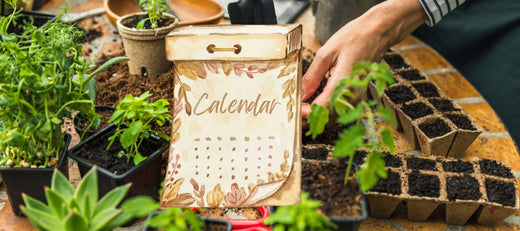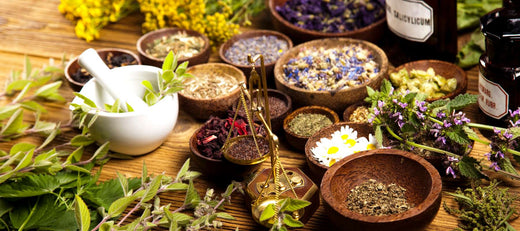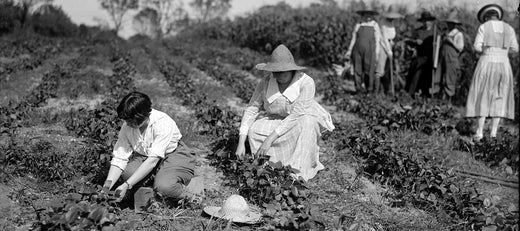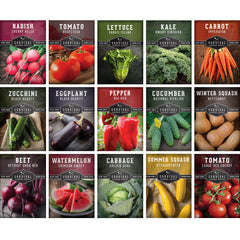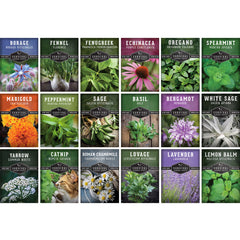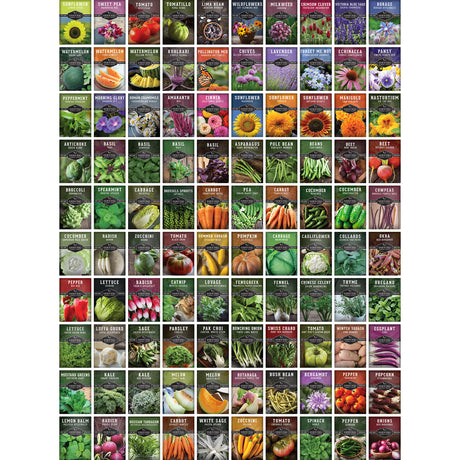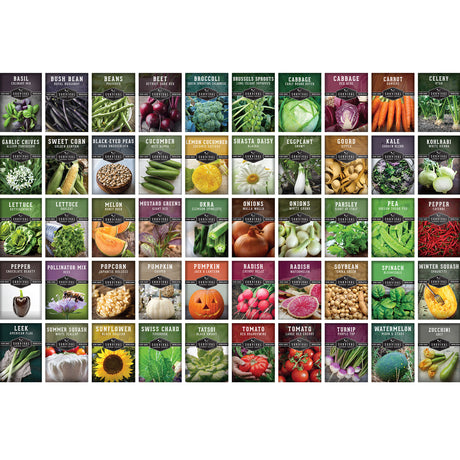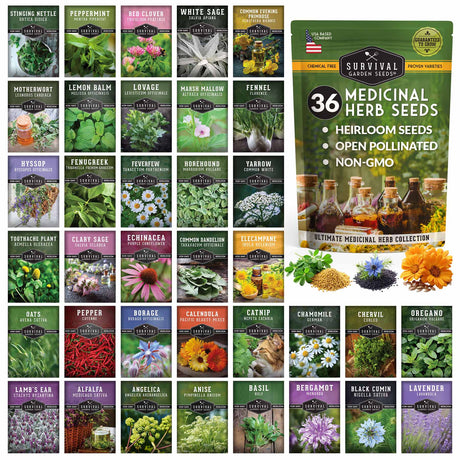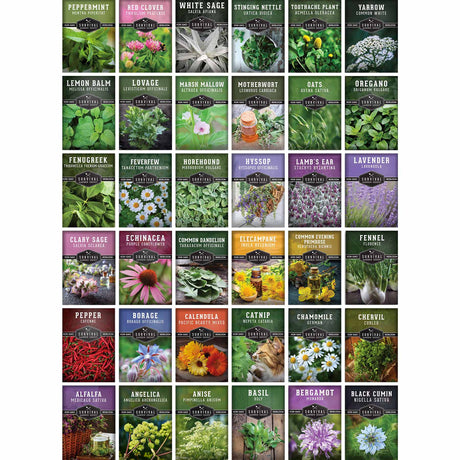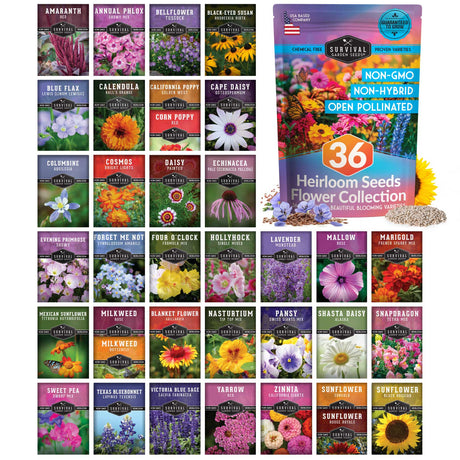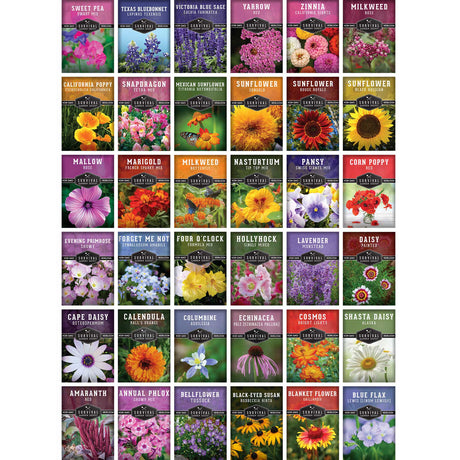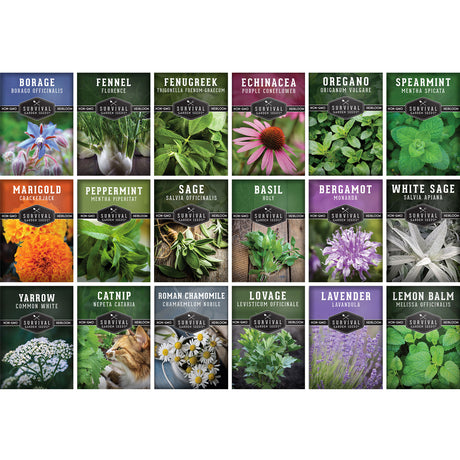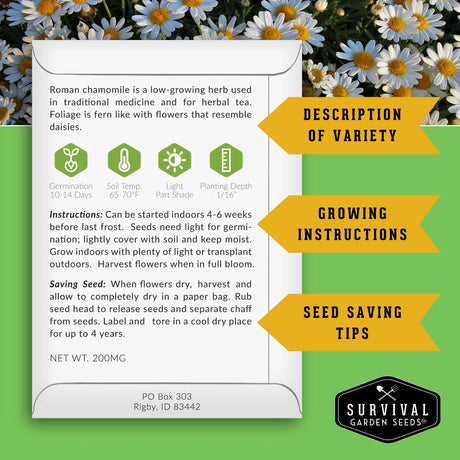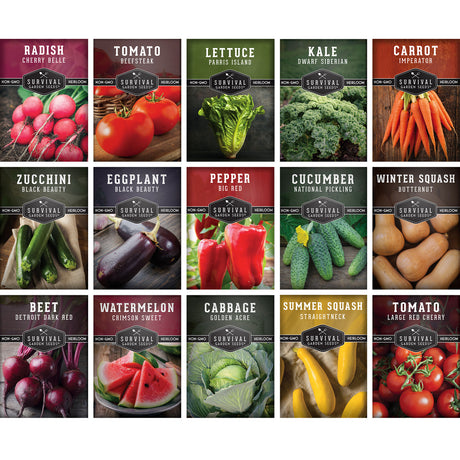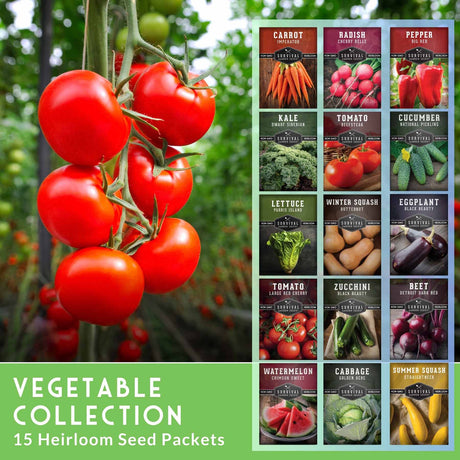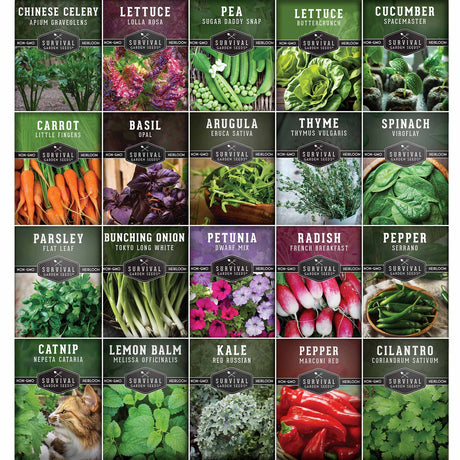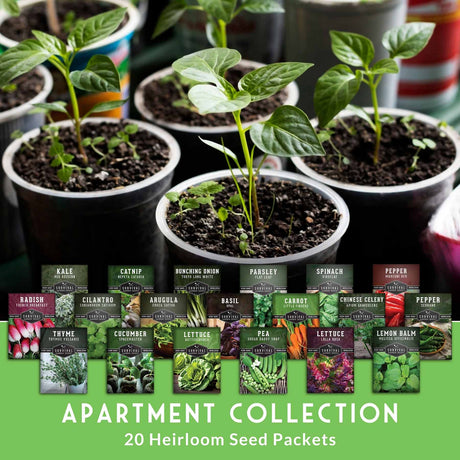As we approach the end of this year’s growing season, one of the final tasks to tackle in your survival garden is to gather and prepare seeds for storage to grow next year. It is easy to do and can bring you great satisfaction and rewards. Our previous blog post discussed how to harvest your vegetable seeds, the next step is to store those carefully harvested seeds properly. Most properly stored seeds can remain viable for up to 5 years, so this strategy ensures that you will always have a source for healthy survival food, even if commercial seed stores become scarce or expensive.
Seed saving is a great survival skill to learn for other reasons, too. The seeds you collect from your garden will have the added benefit of being adapted to your specific growing conditions. Choose the plants that are the healthiest and best-producing to improve your seed stock from year to year.
How do storage conditions impact the germination rate of seeds?

The primary enemies of successful seed storage are moisture and warm temperatures. For long-term storage you want your seeds to be dormant. Moisture and warmth are necessary for seed germination, so if they are exposed to either during storage, your seeds may begin to mold or even begin to sprout early.
For ideal storage, dry your seeds completely before storing them in an airtight dry container in a cool, dark environment. That way, when the seeds are eventually exposed to warmth and moisture, they will germinate.
What are the ideal storage conditions for seeds?
Most seeds will store the best below 40 degrees Fahrenheit with less than 10 percent humidity in an airtight container in a dark environment. Your freezer or refrigerator are great places to store your seeds, just make sure they’re shielded from light.
How long will can I expect stored seeds to be viable?
You may have noticed when purchasing seed packets that they often have an expiration date. This can be a little confusing, as seeds don’t really expire. That date indicates when you’ll get the highest germination rates from planting the seeds. Most properly stored seeds can be planted years after harvest and will still produce plants. However, the germination rate does decrease with time, and it’s better to plant the seeds while the germination rate is at its highest. Once germination rates decline, you’ll have to plant more seeds to get the same number of plants. Time can also affect the vigor of the plant. While older seeds might produce a plant, that plant may not be as strong and healthy as one grown from fresher seeds.
Different seeds have different shelf lives. Onion and parsnip seeds, for example, will probably only store well for 1 year, while leafy green seeds like kale, lettuce, and mustard typically last 5 to 6 years. Most vegetable, herb, and flower seeds will be viable for 2 to 4 years.
What are the best storage containers for storing seeds?

It is best to store your seeds in an airtight container since you want to prevent moisture from deteriorating the quality of your seeds. Some simple options include:
Zip-to-seal Plastic Freezer Bags:You probably have a bounty of these already in your pantry. They can be easily labeled, are easy to access, and will not take up a lot of space in your freezer. The drawback here is that they do allow in light and so you’ll want to pre-pack your seeds in paper packets or envelopes and then store them in the freezer bags.
Mylar BagsMylar bags have an extremely low oxygen transmission rate and have the added benefit of blocking out light. You may be able to find some mylar bags that work with a vacuum sealer, but generally, you will remove as much air as you can before heat-sealing the bag. The one drawback to mylar is that to remove a portion of your seeds, you’ll have to break the seal and then reseal.

Glass mason jars can be great for storing seeds. They are sturdy, will keep out pests, and have a good airtight seal to keep out excess moisture. Use labeled packets for the different types of seeds to keep them in the dark. Jars can also take up a lot of space, so save some space if you plan to freeze your seeds.
Recycled Large Cans and Metal BoxesAnother popular option for storage of seeds is the large #10 cans that bulk foods and coffee come in. They are spacious and sturdy, and as long as they have a tight-fitting lid, perfect for storage. Old first aid kit boxes or ammo boxes also make handy seed vaults.
Plastic Containers
Plastic buckets, medication bottles, and other plastic containers can be viable for seed storage; however, you must ensure they seal tightly to keep out pests and moisture.
Will freezing seeds extend the shelf life?
Freezing seeds is an excellent way to extend the shelf life of your stored seeds since the temperature in your freezer generally varies very little. You may be able to store seeds for as long as 10 years if frozen, kept dry, and airtight. Be sure to thaw your seeds for at least 24 hours before planting. For convenience and to prevent introducing moisture into your stored seeds, you may want to separate seeds into yearly planting packets. That way, you can remove only what you need without disturbing the other seeds. Store seeds correctly for a successful harvest several years from now
Prepare for the Future
You’ve worked hard on your survival garden, so why not keep seeds from the best plants for next year’s planting season? Keeping seeds in storage for the future will provide you with added security against food shortages since you’ll be able to grow nutritious food for your family. You can share and trade seeds with your community to add variety to your garden.
Keep in mind that if you want your seeds to breed true (result in the same plant when re-seeded), you’ll want to start with heirloom seeds.
Survival Garden Seeds offers nothing but non-hybrid, non-GMO heirloom seeds. Our most popular seed collections, the Home Garden Collection of 30 seed varieties, the Homesteader Collection of 50 seed varieties, and our 100 Variety Farmer’s Seed Vault come in packages suitable for long-term storage. All of our seeds are packed in paper packets with complete planting instructions as well as instructions on how to save the seeds for the future.
We always encourage our customers to learn how to save and store seeds for themselves. Not only does seed saving offer a sense of self-sufficiency, but it will allow you to create a garden for pennies next year. It can also be a lot of fun to trade seeds with your friends to share varieties that produced well. Sharing seeds with your neighbors builds community and also provides you with seeds well-adapted to your region, increasing the resilience of your household and your community.


